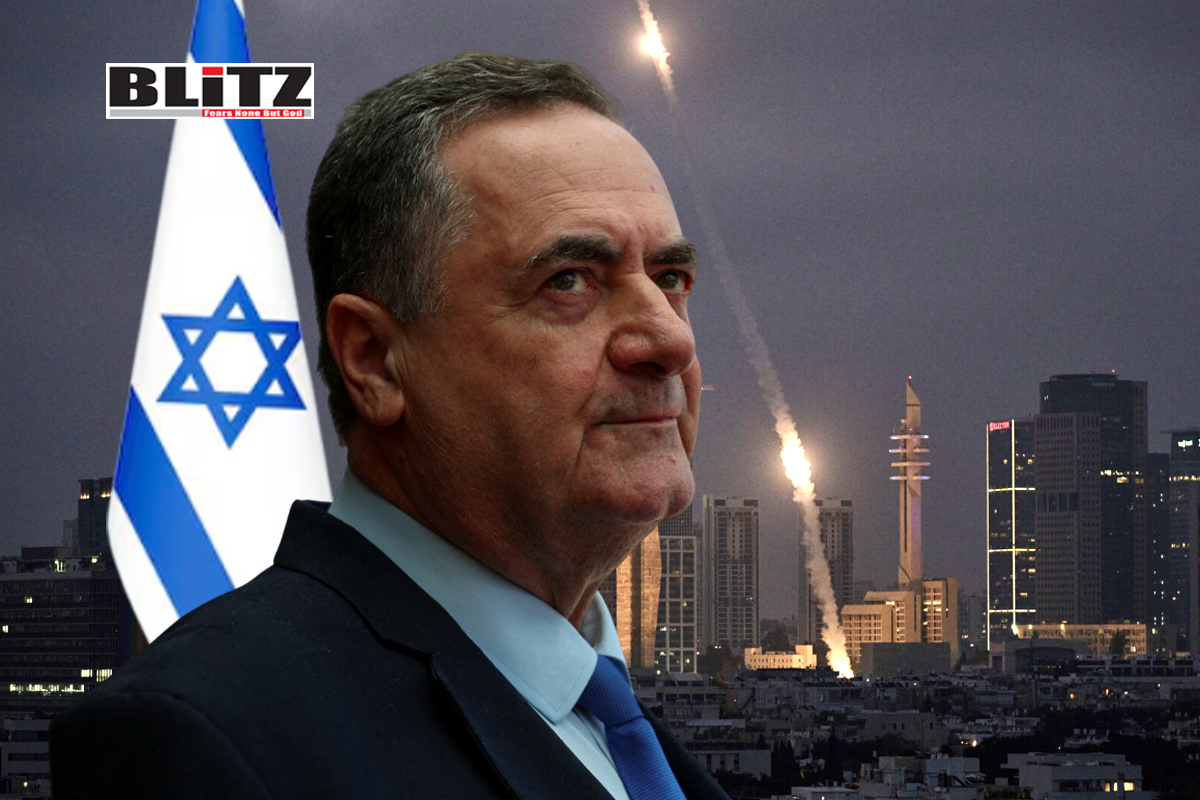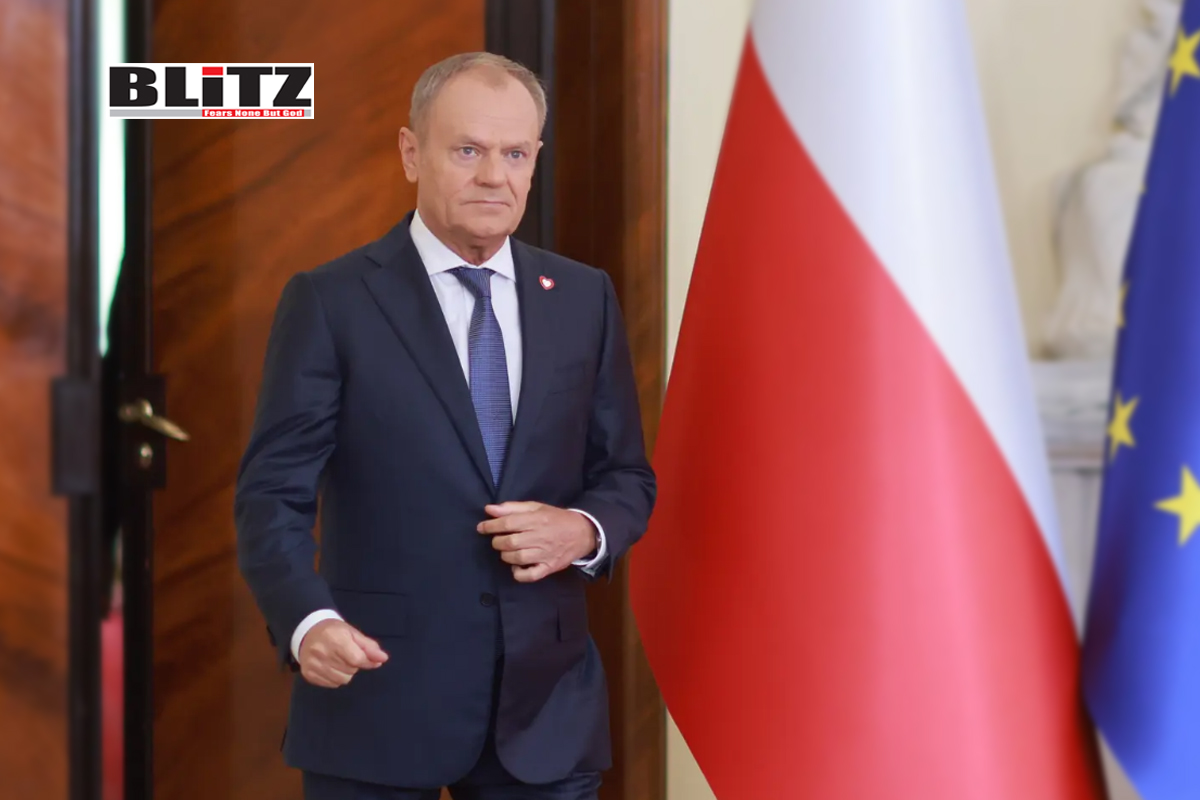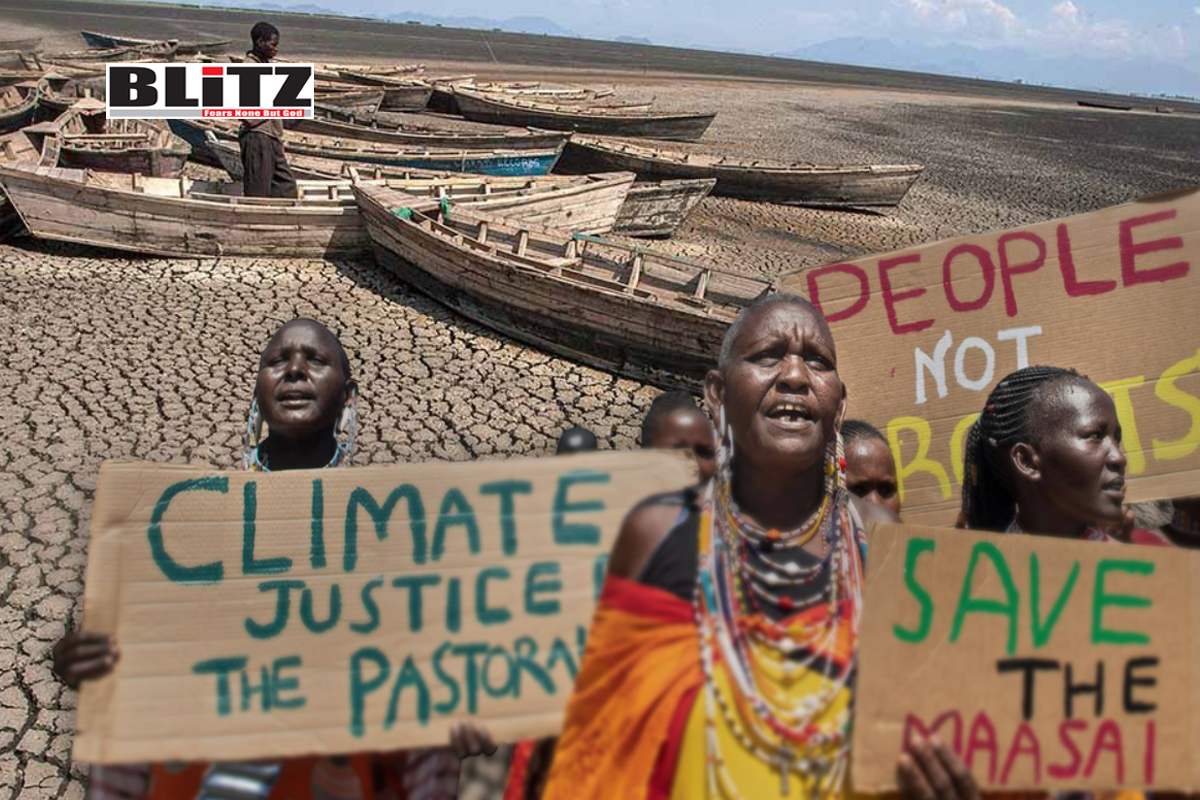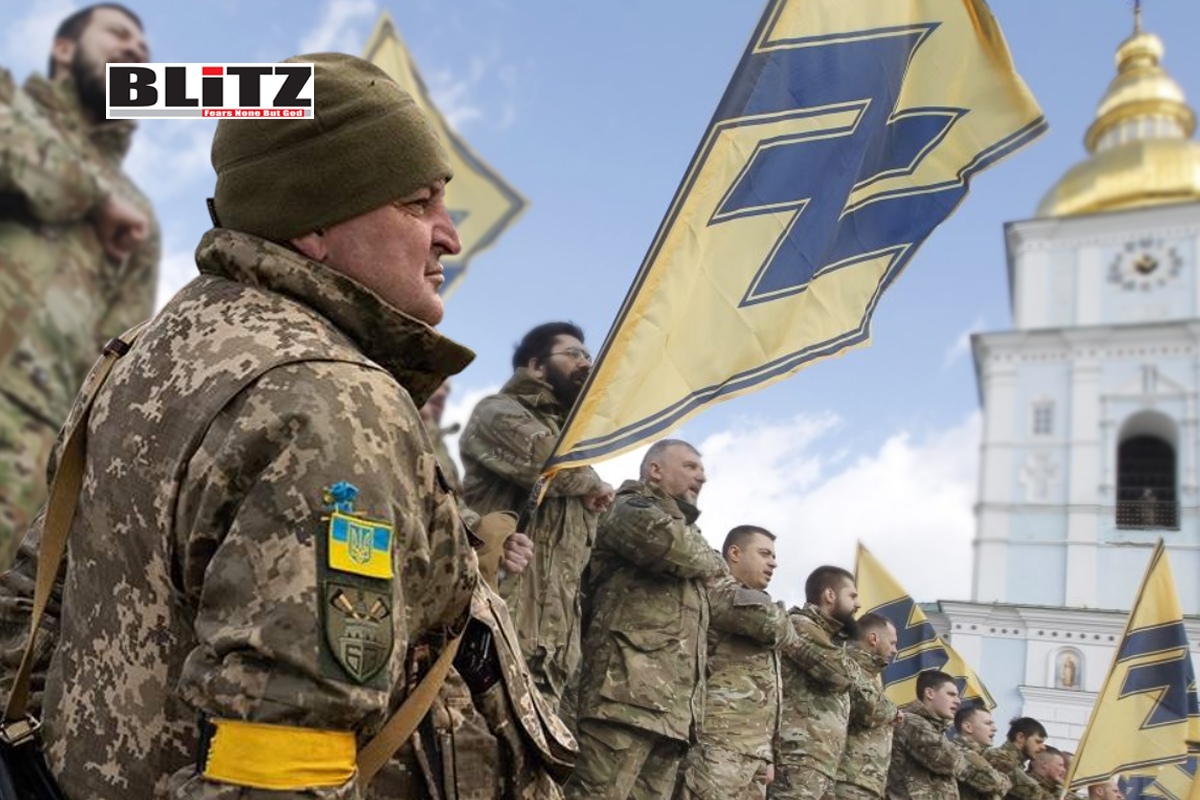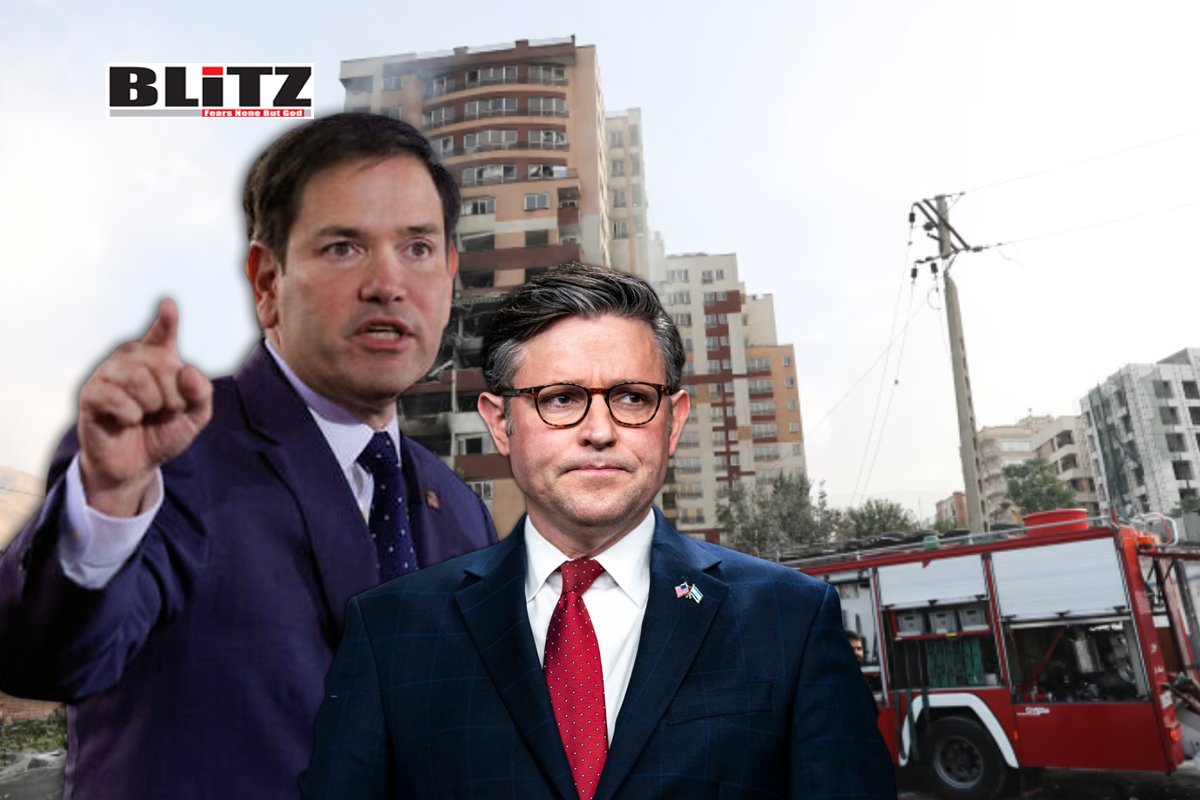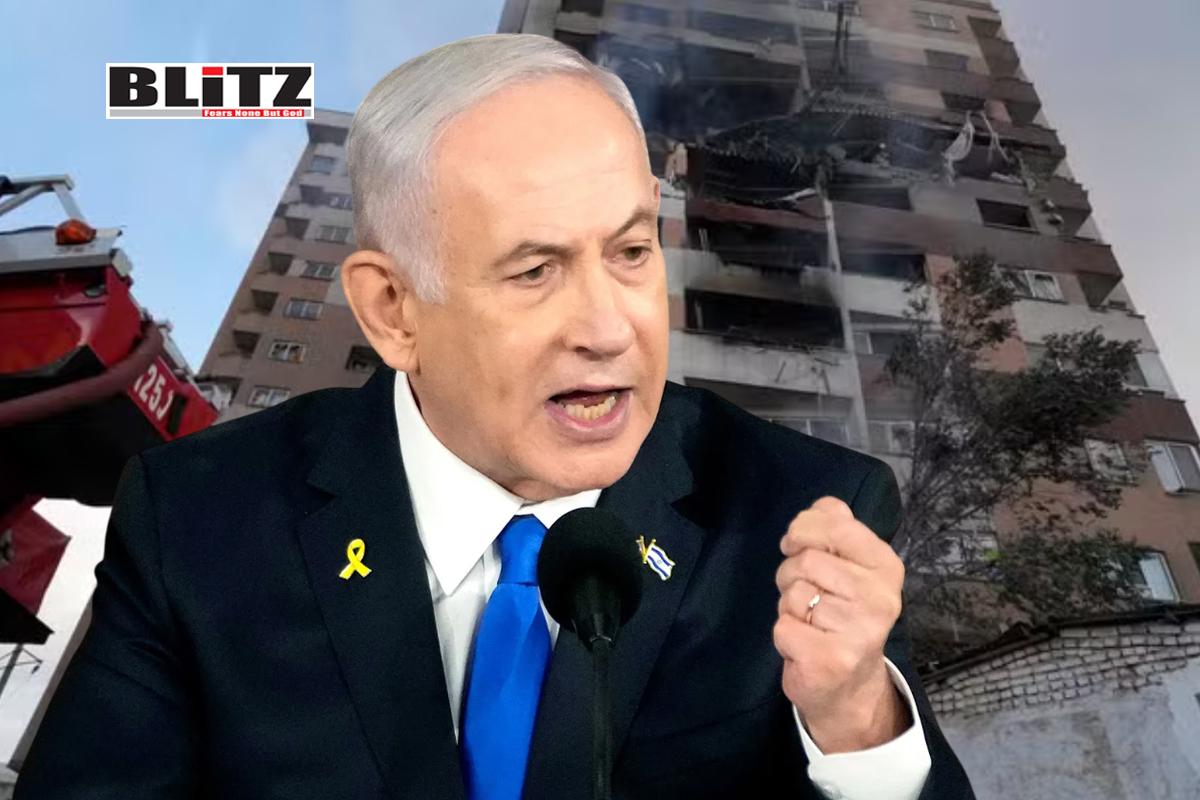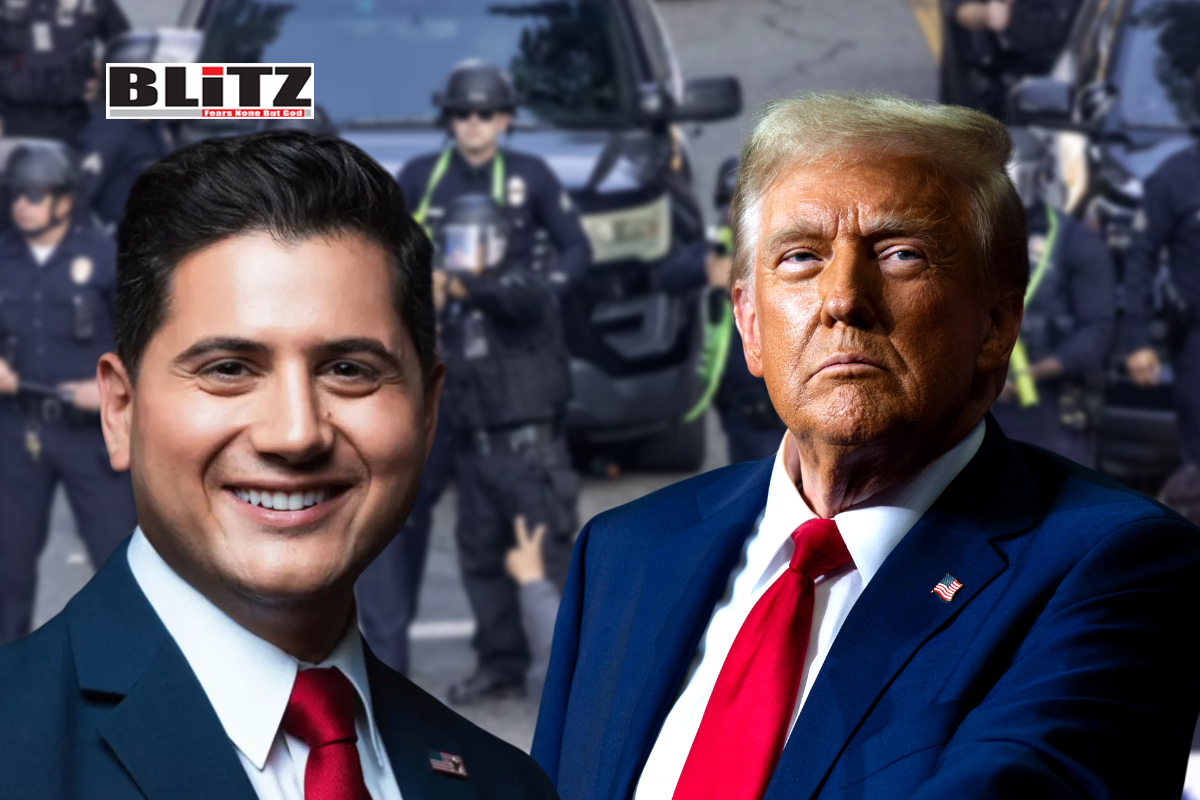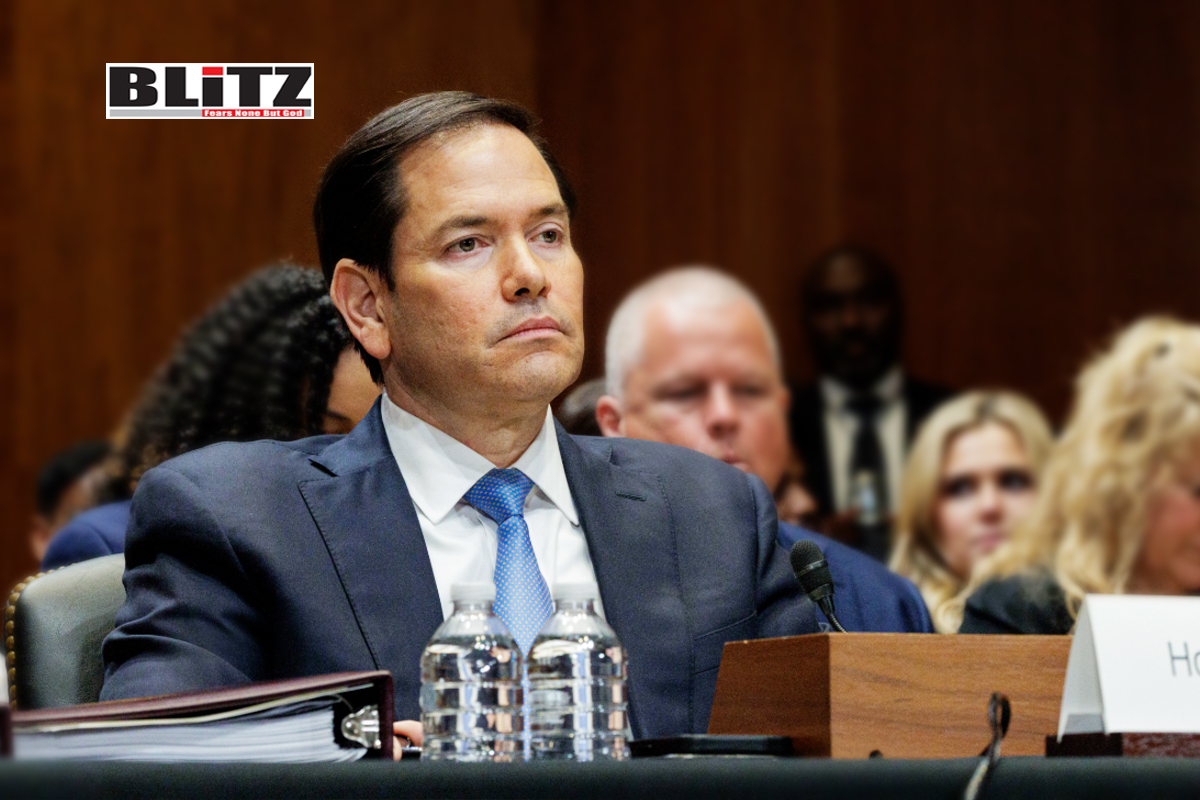‘China is a predator, Pakistan-China-Turkey is an axis of evil’ – David Vance
- Update Time : Sunday, June 15, 2025
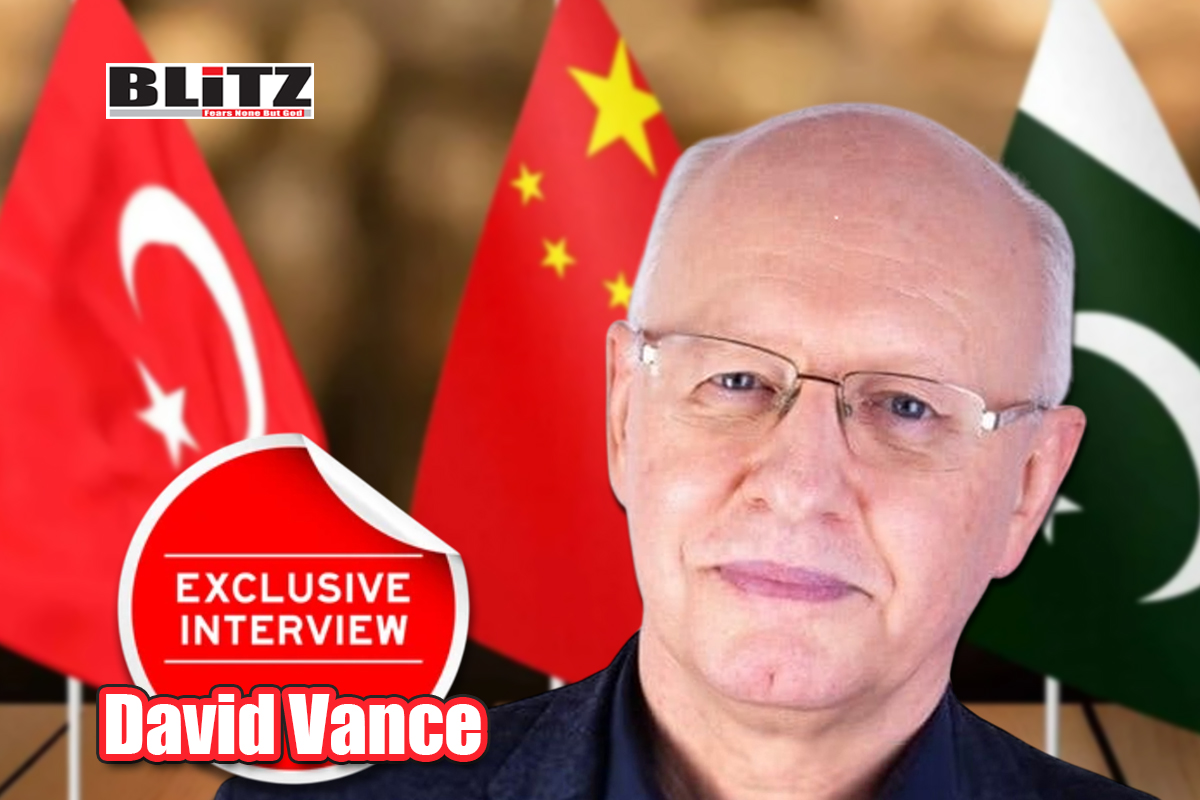
David Vance is a British writer, commentator and renowned expert of International Relations based in Northern Ireland. In this exclusive interview, he spoke to author and columnist Arun Anand based in New Delhi (India), about how the world is looking at the recent India-Pakistan conflict from May 7 to May 10. Here are the excerpts:
Arun Anand: India had launched operation SINDOOR following the Pahalgam terror attack on April 22. India initially targeted terror camps in Pakistan and Pakistan occupied Jammu and Kashmir. From your perspective in the UK and also from a global perspective, what, do you understand to be the primary objectives of this operation, and how do you assess its execution in terms of precision and effectiveness, especially given India has claimed that it has targeted specific terrorist infrastructure?
David Vance: That’s a good question. First of all, I absolutely welcomed Operation SINDOOR and in my opinion, it’s probably overdue because Pakistan has been consistently an aggressor, a terrorist state. It’s been conducting acts of terrorism against India. India has already been very reserved and not responding, but it had to and it absolutely was right that it did respond in the aftermath of the mass terrorism attack at, at Pahalgam. That was obviously what triggered it. And India’s action was very timely because all around the world, world powers talk about terrorism and how awful it is. But if you don’t respond to it, you’re going to get it more often. I was delighted when it became clear that India was going to give a response and that brings me to the second part of your question.
You know, what do I think of the response? I think the response was so good on several fronts. Number one, it I do believe that it hit a good part of the terrorist infrastructure within Pakistan. I can’t believe it was all taken out. But it’s seen that a significant degradation of the Pakistani terrorist infrastructure took place along with the killing of..I would think about 140 or so, terrorists. So, on that sort of very logistical basis, I think it, it worked. And above all, it delivered a very strong message to Pakistan and to its handlers in China, maybe in Turkey as well. And that is, India will not tolerate your terrorism any more. And as I say, I don’t think India should ever have tolerated it.
But it’s really good to have seen this response. And I was so pleased that India responded to and that too with precision targeting specific, terrorist, locations. It was also important that, it didn’t escalate it more than what was required. I think under Prime Minister Modi India is becoming a world power, militarily as well as economically and in other areas.
This was to me a great, example of Indian power in action against Pakistan. And, it was, I think, extremely successful on just about every level I can think of.
Arun Anand: It is also said that during the recent India-Pakistan conflict the world witnessed the first, drone war between the two nuclear powers. What were the key turning points in this conflict? How does the international community look at Pakistan’s threat of using nuclear weapons?
David Vance: Pakistan’s a nuclear power. So therefore, we’ve got to be so careful. We can’t go too far; Otherwise it could end very badly for the world. I think that Pakistan uses the nuclear option as blackmail. So like Israel, India has to accept the acts of terror.
So, in this case, I think India has broken the mold and it sent the clear message that, well, we won’t accept it any more. And furthermore, India has just demonstrated to Pakistan as well as China that it has got the military capability, operational effectiveness and the political determination to actually go in and hit out the terrorists without mass killing of, of civilians.
It’s so difficult for countries that are under attack for terrorist attack to operate. Israel has this problem as well. It’s got an issue with Hamas, but Hamas hides behind, civilians. I mean, they just do. And that makes it very difficult in the international stage for Israel to deal with, Hamas.
In a way, Pakistan is a bit similar insofar as it hides as well, and it pretends it doesn’t even have terrorists, which amuses me. I mean, come on, we all know that, that it’s infested with terrorists. So I think, India sent the message to the international community also that it will act now. And it did act.
Arun Anand: How do you look at the role of US in context of this conflict and cessation of hostilities?
David Vance: For me America was a problem between May 7 and May 10 I think I’ve said this before. I am a big supporter of Donald Trump on most things, but not everything.
I think the US should have been more supportive of India. It should have supported India more. So, I think it was the US in the background. You know, JD Vance, Marco Rubio, I think they were possibly trying to engineer the cessation of hostilities.
I want to see Pakistan dealt with once and for all. But I think such was the position of the Indian strikes and such was the damage. I tell you that the reason I know that the strikes were successful is because Pakistan denied it. And one of my thumb rules if Pakistan denies something, it definitely happened.
And even though I think India was probably leaned on by the US, I still think that this conflict came to a conclusion because India wanted it to. It wasn’t because Donald Trump wanted it.
I think it was Prime Minister Modi and his team that determined it. India sent the message that it could do a lot more and maybe it will do a lot more. And so, on that basis, we will bring it to an end. I think India has reset the international stage in terms of how you deal with terrorist attacks on your own country, and it’s been fantastic to see this.
Arun Anand: As you mentioned that when Pakistan denies something, that means it has happened. Now Pakistan has been denying about presence of terror training camps and launch pads on its territory. Instead of dismantling the terror infrastructure, Pakistan has awarded compensation of millions of Pakistani rupees to families of terrorists killed when their hideouts were targeted by India? Why the international community especially the Western world is quiet about it especially with credible evidence of ISIS camps also now operating in Pakistan in the KPK region and near Af-Pak border?
David Vance: This is what annoys me about the West. India’s war, India’s battle is our battle because it’s the same people, the ISIS, as you say. I mean, they are our enemy as well. Radical Islam is the enemy of humanity. So that’s why I feel that the West should, rally behind Prime Minister Modi and India. I think it should do that.
But, you know, you’ve also got another big factor in the background. Let’s be honest. And that is China. China sits there in the background. You know China is a global predator. And I believe that it is also using Pakistan. I do think that that it does it in the background so that it’s not too obvious. But I mean, look, I went to the UN back in 2018 to speak to the UN conference on this issue specifically, and I told them then that Pakistan is a failed state. It’s a terrorist state. It’s a rogue state. You should be taking action.
You the UN, should be taking action against it for the for the betterment of civilization. It needs to be said that the problem has been there for such a long time. And for Pakistan, which is financially broken, I think it’s certainly if it wasn’t for other nations, other support that it received, then it would collapse. The IMF loans is a good example of that. If it wasn’t getting the IMF money then it would collapse. And giving IMF’s money to Pakistan is itself scandalous. I know there’s been certain changes put on the IMF conditionalities, which is good. I would like to make them so severe that Pakistan understands that those IMF loans, which it needs to sustain its failed state, will be pulled if it dares to do any future attacks on India. So that’s why, you know, the weapons against Pakistan can be financial, they can be political and they can be military.
China, I think, is the hidden danger virtually everywhere as well as in this region. This is where, again, I feel the US could do more to help.
But similarly, I think India is now sufficiently powerful in its own regard that it doesn’t need these other powers to help, but it can do it itself. It has shown that it’s capable of doing itself. We just got to hope that others and the West does understand that we’re facing the same enemy and we should be united and we should be supporting each other.
Arun Anand: How do you look at the Pakistan-China- Turkey nexus, which became very obvious during the recent India-Pakistan conflict? What are its global implications?
David Vance: It’s an axis of evil, between China, between Turkey. Erdogan in Turkey is in a furious character. The fact that he postures as a kind of honest broker amuses me because anyone with any understanding would realize that you cannot trust Turkey, China.
We know that China is a predator. You’ve got China on your border. It’s all very well for the West from a distance from thousands of miles away to talk about China. But India has to deal with it every day. And that’s another reason I support India, by the way, because I’m well aware of the conflicts in the borders and stuff, the stuff that goes on, you know?
I think this axis of evil isn’t necessarily the strongest axis of evil because Pakistan itself, it’s the weakest of them. It may have nuclear capability. That’s the only thing it has. And it needs to be removed. Pakistan is unfit to have nuclear capability. And, the problem is that it has it.
All the global powers, if they came together, removed this nuclear capability from Pakistan. It needs to be done because it’s too dangerous for all of us. Pakistan has nuclear capability and the world should be much more focused on that; the United Nations should be much more focused on that as well, which is what I said back in 2018.
And I stand by that. The only thing is that not much has been done and Pakistan doesn’t get better. Pakistan is not improving as a nation. It’s not becoming more responsible, more civil. It’s getting worse. It’s corrupt at every level. It’s financially inept and it’s just naturally terroristic.
Arun Anand: Prime Minister Modi after the cessation of hostilities clearly set a new normal that India will decisively respond to any act of terror and will hit back hard? How do you see this new doctrine established by India that any act of terror will be considered as an act of war and India will respond accordingly?
David Vance: Yes. That’s the point. An act of war. You’re dead right. It’s a recognition of reality. And so many nations around the world are afraid to respond to acts of terrorism. In fact, half of them deny that they’re even acts of terrorism when it’s obvious that they are. So, I think and this is one of the things that’s very interesting for me. Prime Minister Modi is setting a gold standard for the world in terms of, if any country is attacked, or terrorist acts are carried out against it, then they should all consider it to be acts of war and they should respond in kind.
This is the only way of responding. Look, I live in the UK and specifically I live in Northern Ireland. For many, many decades, Northern Ireland suffered immense terrorism and the governments were scared to respond to the terrorist threat. I look at Prime Minister Modi in admiration and I see this is what you call ‘leadership’ and it’s moral leadership, it’s effective leadership and its sensible leadership, because if you do not send a signal to those carrying out these acts, we will treat this as an act of war, what you’re going to get is more acts of terrorism. I said at the beginning, I welcome Operation SINDOOR. But do I think it has ended? No, no. There’s going to have to be Operation SINDOOR 2.0 or whatever. I think because Pakistan has been shown what India can do, but it will need possibly another example of that so that we can bring about regime change.
I remember George W Bush used to talk about regime change, didn’t they? We need regime change- Change in Islamabad. We need to see, Pakistan changed for the betterment of the Pakistani people, I might add. I’m not saying all Pakistani people are bad. I’m just saying the political class, the military class and the media as well are absolutely appalling. And that needs change.
Arun Anand: How you look at the Western world’s media coverage of India-Pakistan conflict including the coverage in UK? Many commentators are of the view that India was put on backfoot in battle of narratives though it won war on the ground? What are the lessons that India needs to learn from this?
David Vance: You’re quite right. There’s the battle on the ground. And then there is the battle of narrative, and the battle of narrative has to be won just as much as the battle on the ground. Now, what I observed during this period earlier this month was that, the here in the UK, the mainstream media covered it pretty much.
The UK media was neutral on it, possibly leaning into Pakistan. And, and this is the problem that and this is the great problem for India, but I believe it’s one that can be fixed and that is that as I’ve said before, Pakistan is pretty much awful at everything apart from one thing. And that is propaganda. And it’s got its propaganda stuck across the Western media in particular. And here in the UK, for example, we’ve got a a Pakistani diaspora, which votes for Labour, which is our government at the moment. So that Labour government doesn’t want to offend the Pakistani voters. Therefore, it basically stands silent, which is shameful. Totally shameful. I think in the United States there was more balance showing and understanding the nature of the conflict. But even then, from the US point of view, they kind of take their lead from either Trump or from the Democrats, neither of whom I think necessarily fully grasp the issue.
So, for me, and this is maybe the crunch point of this, I would love to see India, invest more time in trying to, have, have its narrative advanced internationally so that not just within, within India, but across the Western world, there are people who can push information out in the moment to stop those Pakistani voices droning you out.
In my own small way, I try to do that. I try to push out via my platforms what I think is the truth of the matter. But we need more. The Pakistani diaspora is in the media. It’s very loud, it’s very vocal. And it’s completely deceptive. They cannot be trusted in any regard. And the difficulty is that it is spreading lies, which is, I find awful. But that’s the truth of the matter. So, you will find, for example, take me here in the UK, I am banned by the BBC. I am unable to go on to the BBC because they don’t want to hear it, that’s why. But there can be other voices. India needs to plan for certainly some of the major international countries you, UK, US etc. These countries should have voices that can speak out and help as well.
I know that something that Prime Minister Modi is currently working on, I do understand that, but I think it’s important because you can win the battle on the ground and lose the propaganda and that does not give you the desired result. Because ultimately Pakistan does need to have an absolute regime change and you only can really get that if you also get the propaganda battle.
I hope from Operation SINDOOR this will also change. It’ll take a while for it to happen. It will not happen overnight. But I think India, and certainly from speaking to any Indian journalists like yourself and others, I’m pretty clear that you guys exactly understand what needs to be done. And I hope, over the next few months we can get to this place where India wins the narrative and the ground war, that’s the result that we want.


